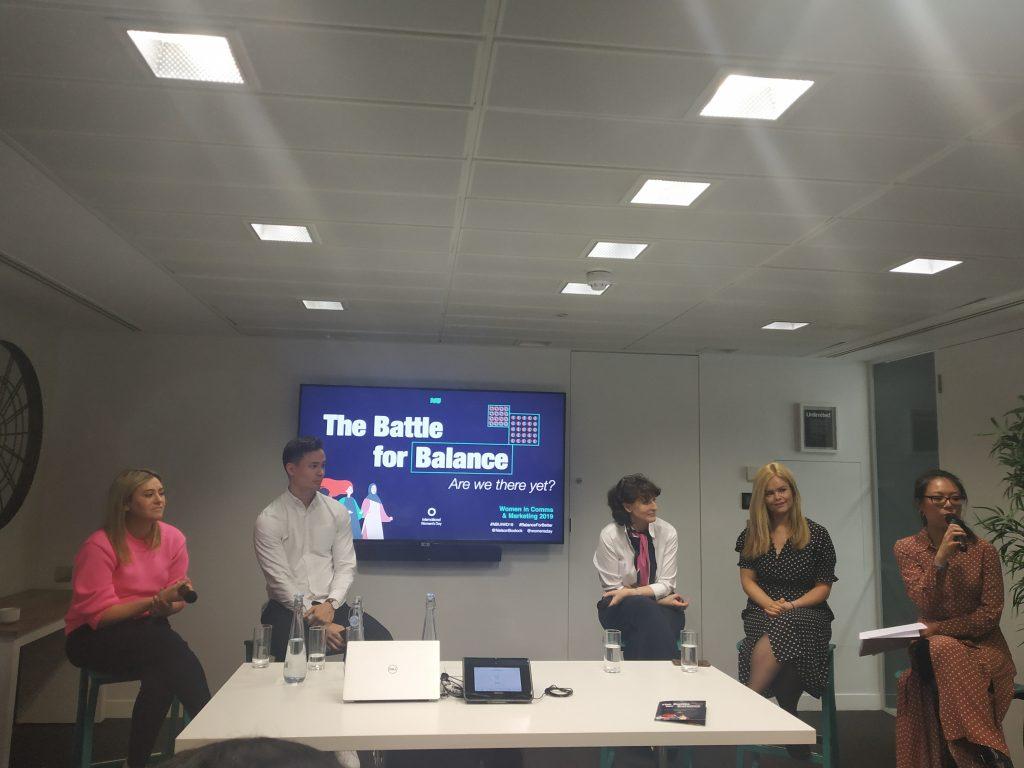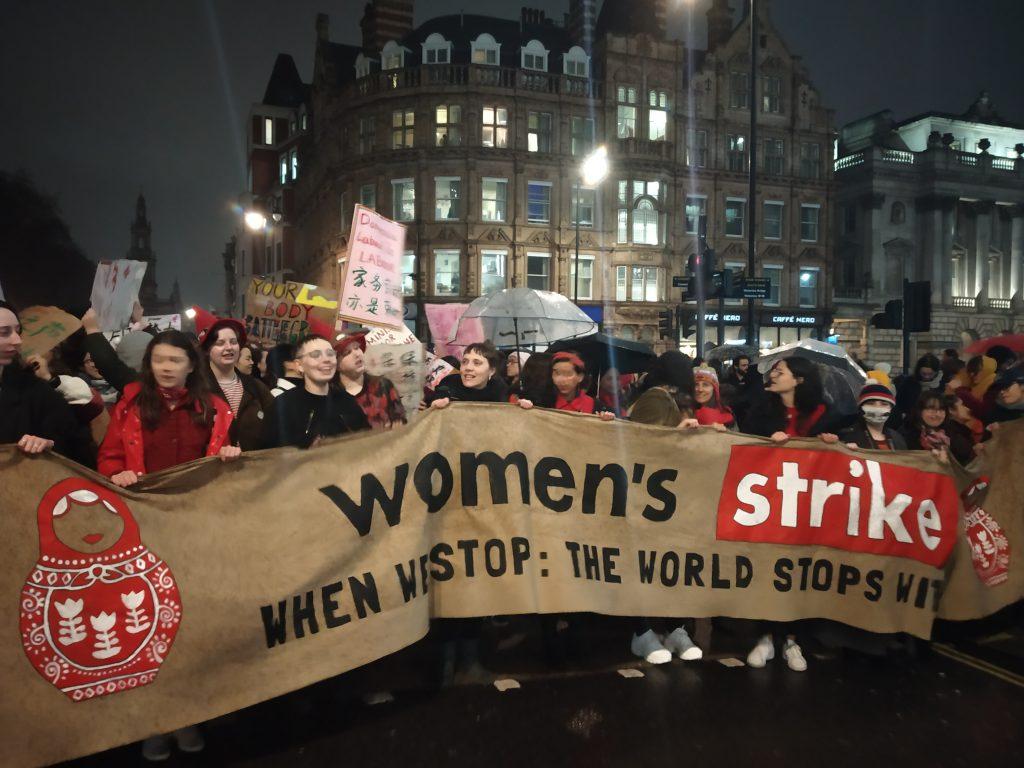My recent visit to London gave me a somewhat “homely feeling”. I came across plenty of South Asians in the city, bumping into an Indian/South Asian almost every 200-300 meters, and frequently overhearing conversations in Hindi, my native language. London is a busy city with lots of tourists, and full of foreign students, many of whom come to study in the city in the hope for a better future (although I assume they have at least heard about Brexit :)). In some ways, I found London to be a more sophisticated version of Mumbai – a city where people are always in a rush. As a vegetarian, I was pleasantly surprised to see free vegetarian food stalls (called Krishna Lunch) set up by Hare Krishna at different points across the University of London, a very noble deed indeed, especially for the homeless people sleeping on the streets.
I was in London on an official visit which began with attending a session on decolonizing the curriculum at the London School of Economics, where the panel discussed their experiences and understanding of how skewed the academic system is towards the white elites, in a number of ways, ranging from the curriculum to jobs, scholarships, publications, forms of knowledge production, to even the everyday experiences of racism in public spaces. The panel was chaired by Prof. Alcinda Honwana (Centennial Professor at LSE), who said that universities should not be static or ‘ideological zombies’, rather they need to be the sites of subversion and rebellion, they must critique and debate, challenge the existing power relationships and re-center the knowledge production process. A master’s student from the audience raised an interesting question on the role students like her, who come to London for a relatively short term (1-2 years), could play in decolonizing the curriculum. Dr. Lyn Ossome from the panel responded beautifully: “Be yourself and the contradictions will emerge in the classrooms and the streets and your daily interactions with people around you. You deal with it, and that’s how you can begin your contribution. You need to acknowledge the reality first. Decolonizing has a lot to do with acknowledging the reality rather than talking in a vacuum.”
Thanks to Gorik Ooms, whom many of you IHP readers will have heard of, I also got the opportunity to attend a few sessions at the London School of Hygiene & Tropical Medicine, from its Masters Course on Globalization and Health. The discussions ranged from the inclusion of the right to health in the Universal declaration of human rights, to the huge global economic cost (~USD 16 trillion) of mental disorders, to how Ebola is framed more as a security threat and a political crisis than as a global health problem. I also attended a fascinating seminar – Ideology over theory: World Bank policy on user charges for health care, 1978–1993. All in all, I got a small flavor of London as a global health hub in these few days across the Channel.
However, the key highlight of my visit to the UK capital was International Women’s Day 2019 (IWD 2019), with this year’s theme, #BalanceforBetter – the better the balance, the better the world: calling for a more gender balanced world, as you might have guessed. While gender equality/equity is increasingly discussed and addressed, there is one day when this issue gets more attention than the other 364 days of the year, i.e. 8th March- IWD. On this day, several gender related conversations are ignited again and some interesting and eye opening stats are released. Just one example: “If gender parity were theoretically reached, $28 trillion would be added to the global economy by 2025”, according to a study by McKinsey.
Multiple sessions and events took place throughout the week on IWD 2019 (and its overall theme) in different areas and streams. I managed to attend a few of them and below I will share what I learnt by taking part in those sessions. Most sessions included panels where women from different fields, age groups and ethnicities reflected on their respective journeys and struggles to deal with the currently skewed and gender-imbalanced world. It was interesting, though perhaps also a bit sad, to see that (just) one of the panels I attended included a male panelist. Gender equity isn’t just about female emancipation – it is about fair and equal chances amongst all the sexes. Neither gender equality, nor equity can be achieved without the engagement of all.

The panels discussed a wide range of barriers women face at the workplace, not the least of which is the age-old challenge of the household and family, largely being a woman’s responsibility. Many discussions revolved around sharing and understanding the internal inhibitions women deal with (like how to deal with hatred and criticism, the biggest barriers to become a leader, how to answer questions/comments on body shaming etc.), but they also highlighted their sources of strength and support that help them realize their goals and dreams, the skills and characteristics required to succeed, their limiting beliefs and how to overcome them. An issue pointed out by virtually all panels was the high prevalence of the ‘imposter syndrome’ amongst women as compared to men. For example, two panelists from different panels referred to their feelings of self-doubt for being called to speak on the panel: “I am being invited to speak on the panel, has someone cancelled? I must be a back-up plan for them”. It was highlighted that women experience negative self-perception and under-confidence all the time, ‘I am not good enough’, ‘have I done it right’ etc. There are also often people around us who try to pull us down, who deliberately make us doubt ourselves. Just a personal example perhaps: when I got admitted for a PhD program at India’s most prestigious school, IIM Ahmedabad, my colleagues said, oh you must have been lucky; one person literally came to me and said he had dreamed of my selection process, “seeing” in his dream that the jury showed mercy to me and so I got admitted. Gosh! We, women, need to get rid of such toxic people from our lives and we need to strengthen our beliefs in our own selves and capabilities, this is what will prove such bullies wrong. Too many of us women continue to seek validation from others and often forget what we really deserve. We need to stop doing that.
A very interesting exercise was conducted during the IWD 2019 Future Leaders Forum (organized by The Sister-Sister Network that aims to provide leadership training to women from different fields in the UK) on how to deal with the feelings of self-doubt. Every person has two selves to deal with a situation, a “negative and disparaging self” which will always display negative feelings towards everything (and certainly oneself), as in ‘I am feeling ugly today’, ‘I shouldn’t have volunteered for that’, ‘I am feeling anxious, I shouldn’t go for that session’, always radiating negative energy all around. And then you have a “wise self”, which tries to find something positive in every situation. ‘I look good today’, ‘Good that I went for that session, I got to know about women’s leadership’, ‘it’s okay, everything will be alright’, ‘what’s the worst that could happen, I will get an experience’. In this exercise, they asked a volunteer to reflect on a situation and understand what her negative and wise selves would say to her, and how easy and sensible it is to choose the wise self. So the lesson is: whenever you get overpowered by your negative self, always go check what your wise self has to say in that situation, and you will be surprised to see that your nerves calm down and you feel the positive vibes around. Whenever in confusion, always listen to your wise self! (not sure it works for men too! J)
Another very interesting exercise at the Future Leaders Forum was carried out by Mark Francis, the Director of a Leadership Training program, @Uspire. He made us meditate for a few minutes to help us imagine and visualize our future, under the assumption that it is impossible to fail. The impossibility of failure was the key. All too often, we limit our imagination to the possibilities of success that we can foresee (or not). I felt that organisations and institutes should often conduct such sessions reminding people of their potential and the sheer power of imagination, pushing their boundaries, because often we get so engrossed in our work and family life, that we forget what we really are capable of.
Last but not least, like the 10-year challenge that recently went viral on social media, it is important to reflect on the journey for gender equality along similar lines. Where were we 10 years ago, advocating for gender equality? Yes, we are advocating for it right now and, we will still be doing so in 10 years from now, as the progress is often incremental and slow. Make no mistake, we are fighting against deeply ingrained beliefs and patriarchal ways of governing the world. Achieving a gender-balanced world will require a massive paradigm shift and participation from each and every one of us in our own little ways like breaking the stereotypes when raising our girls and boys, teaching them about equality and respect towards women, instilling the confidence in our daughters to focus on their inner beauty rather than their outer appearances, becoming role models for our children and most importantly supporting other men and women who stand up for these causes. I did my good IWD deed of the long weekend by briefly (ahum, 10 minutes) taking part in the Women’s Strike in London on the eve of International Women’s day, organized in solidarity for women’s rights and equality across the world.
I will leave you with this rather interesting panel question: which one will be achieved first, the end of global warming or gender equality? While we have only 12 years to avoid climate change catastrophe (and some say even less), it will take us around 108 years to close the global gender gap, according to the Global Gender Gap Index 2018 (by the World Economic Forum) – and many think even that won’t suffice.
Let’s prove them wrong!

Well written Deepika. We need to keep fighting in order to achieve some level of justice and together we can do it!